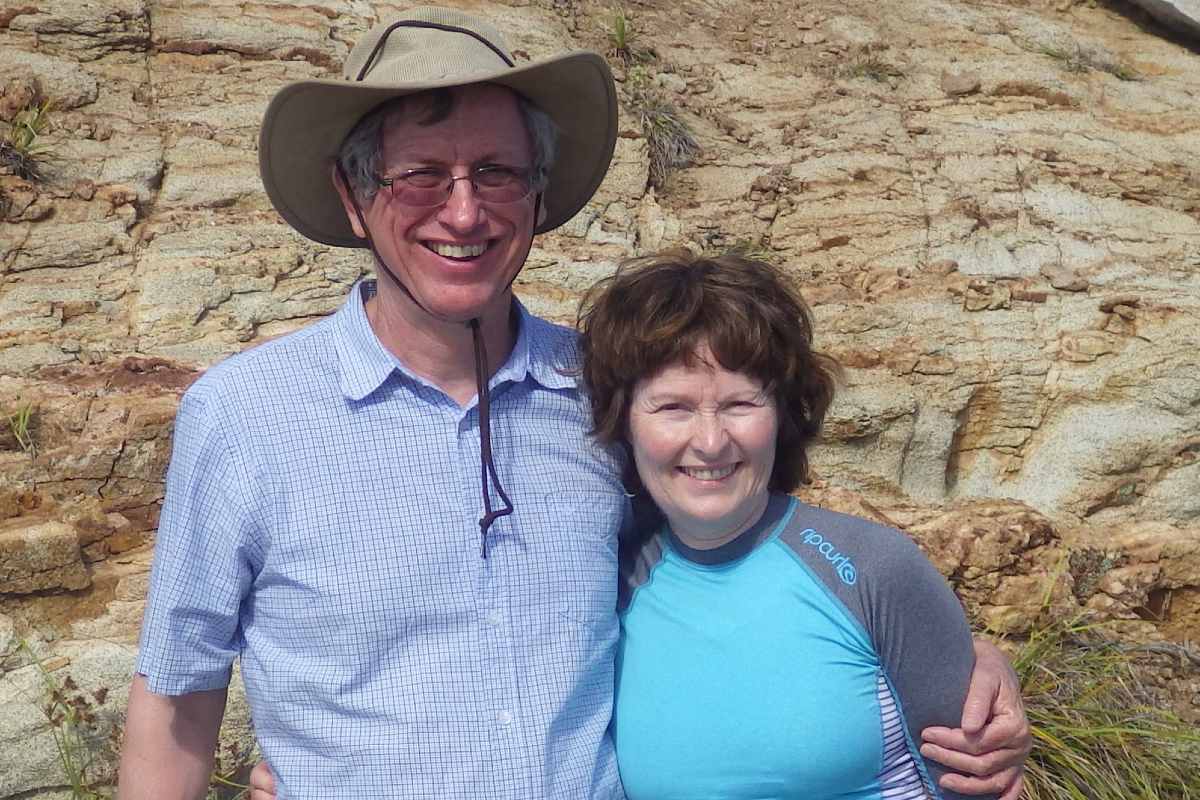A legacy of inspiration: Murray Wiegand
Andrew Lyle - 14 September 2021
For many, the transition from undergraduate to graduate studies can be a bumpy one. A new level of expectations, responsibility, and scientific challenge await—and critical to this process is the mentorship and support of a graduate supervisor.
Murray Wiegand (PhD ‘79) is no stranger to this challenge—or to the difference that the support of a passionate and encouraging supervisor can make. It is the legacy of his own supervisor, Richard E. Peter, that inspires Wiegand to support the next generation of graduate students today.
“Graduate school is a whole new form of learning, when you go from getting fairly standardized undergraduate labs meant to teach you skills to having to conceptualize on your own and learning how to do original science,” said Wiegand.
“That is the big step that you take, and some people make that step very quickly. Others, like myself, did not.” laughed Wiegand, “And this is where excellent mentorship comes into play.”
Wiegand completed his undergraduate education at the University of Waterloo, before moving to Edmonton with his wife Nancy to pursue his graduate studies in the University of Alberta’s Department of Biological Sciences under the supervision of Richard (Dick) E. Peter.
“For us, this was a big adventure. I recall we spent two of our first three weekends in the province hiking in the mountains,” said Wiegand. “The department was incredibly welcoming, and had very impressive facilities. There were so many people working on very interesting and very different projects.”
Wiegand recalls that his education had prepared him for his studies, and served him well in his subsequent career. His scientific career and expertise has focused on fish reproduction and related lipid metabolism, studying how fish egg yolk is created and used in the fish reproductive life cycle—furthering our understanding of what influences fish egg viability. But he credits Richard Peter’s mentorship with setting him up for success.
Learning from failure; setting students up for success
“Dick was very patient, very encouraging, and gave lots of guidance. But he certainly didn’t spoonfeed, and he wasn’t afraid to tell you when you’d messed up so you could learn from it,” said Wiegand. “I remember coming into his office one afternoon. At the time I was working on goldfish, a seasonally reproducing animal. You’d get a batch of new fish in June, and by the time you’d collected all your data it was now August, and you wouldn’t be able to get another batch of fish until next spring.”
“I remember Dick asked me if I’d taken a particular measurement when looking at these fish. And, while I was really proud of my results, all I could say was ‘whoops.’”
“Instead of getting angry—even though this had cost us some time and money—Dick just laughed it off with this deep booming laugh of his that he was well-known for,” said Wiegand. “He simply said: ‘Well, I guess you won’t make the same mistake next year.’” Wiegand learned his lesson from that experience.
The importance of mentorship—and the example that Dick Peter provided for him in his own studies—inspired Wiegand to support the Dr. Richard E Peter Memorial Graduate Scholarship, established in Peter’s name after his passing.
“He and his wife Leona, as a team, were so welcoming. He was patient, he was encouraging, but he made you think for yourself,” said Wiegand. “It was the opposite of spoon feeding you answers, but you never felt like he was abandoning you—that he was simply giving you the space to learn the science on your own, and would support you when you needed it.”
“It’s important to me because without Dick’s mentorship, I would not have the career that I’ve had as a scientist. It’s that I feel that I owe him that,” said Wiegand. “I have a lot of gratitude for him and Leona, and I want his legacy to be remembered.”
Supporting the next generation
Peter’s legacy as a mentor is one that left a profound impression on Wiegand, and to him underscores the importance of mentorship and support during graduate studies.
“With Dick, you were responsible for your own fate—and at this level of study, you should be. But you always got encouragement along the way and you might not always like what he had to say to you,” said Wiegand. “But then if, you do, you either don’t need a supervisor or they’re not doing their job.”
Each year, the scholarship supports a graduate student in the Department of Biological Sciences studying in the area of comparative physiology and biochemistry, with preference given to students researching fish. Supporting students as they transition into graduate studies embodies the spirit of Peter’s support as a mentor, Wiegand explains, and is an opportunity to support the next generation of scientists.
“There’s never a shortage of important things to do and work to be done,” said Wiegand. “Whether it’s fundamental science or applied ecology, there’s plenty of work to do in this area. Whether it’s COVID-19 or climate change, it’s science—and these future scientists—that will see us through.”
Are you interested in supporting student life? Contribute to an established scholarship or consider establishing your own to help undergraduate or graduate students with the rising costs of receiving a university education.Give now.
